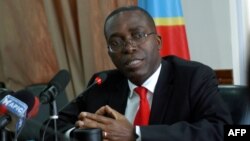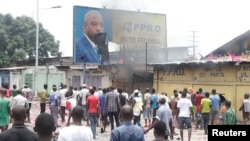In line with last month's agreement between supporters of Congolese President Joseph Kabila and an opposition faction, the country's prime minister, Augustin Matata Ponyo, announced his resignation Monday. A new government of national unity is expected to be named shortly, even though many opposition members are still against the agreement.
The dissolution of the government had been expected since October 18 when Kabila supporters and an opposition faction led by Vital Kamerhe reached a deal for managing the country after December 19, the final day of the president's second and, under the current constitution, final term.
The deal stated Kabila can stay in office until the organization of elections — which have been provisionally scheduled for April 2018 — and Kamerhe's opposition faction will join a government of national unity. A larger opposition coalition, known as the Rassemblement, has rejected the agreement.
It is unclear when Kabila will name a new prime minister, but the president will give a rare address to the two chambers of parliament Tuesday.
After meeting Monday with the president, Kamerhe, considered a favorite to become prime minister, said his faction and Kabila “will manage the country together” to organize elections.
During the weekend, Kabila met with a U.N. Security Council delegation that urged Congolese political and social actors to work toward consensual and inclusive elections.
Lambert Mende, DRC's minister of communications who announced that Monday’s press conference would be his last one, had firm words for the U.N. delegation, which asked Kabila about the lack of clarity around the date of the next election.
According to Mende, Kabila was surprised to be asked about election dates when that area is the constitutional prerogative of the independent electoral commission.
The Rassemblement accuses the president of deliberately undermining the commission to postpone elections.
Mende also criticized the delegation's focus on whether Kabila intends to change the constitution to allow him to stand for a third term.
Quoting Kabila, Mende said it is curious that such questions about possible third terms are so often put to the president of the DRC, a country where no one has ever considered changing the constitution — unlike several other countries in Africa. Mende, still quoting Kabila, also said the president has repeatedly said the constitution, which excludes a third term, will be respected.
The Rassemblement accuses the president of planning to remove term limits before the next election.











